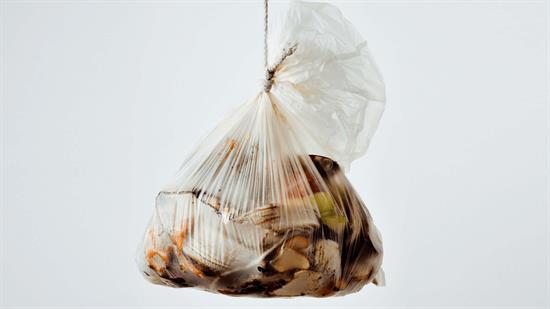Press Releases
Pingree Applauds Biden Administration’s Draft National Strategy to Reduce Food Loss and WasteThe draft strategy, announced during COP28, drives progress toward the National Food Loss and Waste Reduction Goal to reduce the loss and waste of food by 50 percent by 2030
Washington,
December 4, 2023
Ranking member of the House Appropriations Interior and Environment Subcommittee, co-founder of the Food Recovery Caucus, and member of the House Agriculture Committee Congresswoman Chellie Pingree (D-Maine) is applauding the Biden Administration’s draft national strategy to reduce food loss and waste by 50 percent by 2030. Unveiled by U.S. Environmental Protection Agency (EPA) Administrator Michael S. Regan during the 28th Conference of the Parties (COP28) in Dubai, the “Draft National Strategy for Reducing Food Loss and Waste and Recycling Organics” was announced as part of President Biden’s whole-of-government approach to tackle climate change and promote a circular economy. “As someone who has been working to curb food waste and end hunger since my earliest days in Congress, I am encouraged by the Biden Administration’s draft national strategy to rein in food loss, tackle hunger, and fight climate change,” said Pingree. “The staggering amount of food waste in America is not only costly for families, businesses, and farmers, but also has a huge environmental impact. With increased coordination and an established federal strategy, I am hopeful that we can build upon this strategy with commonsense policy change to support food recovery and prevent food waste.” “From day one, President Biden has been clear that tackling the climate crisis requires a comprehensive and whole-of-government approach. The release of this draft national strategy for food loss and waste is an important step forward in this effort to protect people and the planet,” said EPA Administrator Regan. “Reducing food loss and waste is one of the most impactful actions we can take to reduce climate pollution and build a circular economy. Working together with our partners at USDA and FDA, we will take actions to significantly reduce waste and the pollution that comes with it while improving our food system and boosting the economy.” “Food loss and waste poses a real challenge to agriculture, food and the climate. In order to tackle this problem, and in turn build a resilient food system and mitigate climate impacts, we must explore and implement innovative solutions,” said Agriculture Secretary Tom Vilsack. “This joint effort between USDA, EPA, and FDA will enhance interagency coordination and represents a vital step towards preventing food loss and waste, increasing organic waste recycling, and promoting economic opportunity.” “The FDA supports the mission to reduce food loss and waste. While we look forward to our continued partnership with USDA and EPA, we also want Americans to feel empowered and confident in their ability to play a part in that mission,” said FDA Commissioner Robert M. Califf, M.D. “We encourage the public to comment on practical ways everyone can play a role in reducing food waste.” The draft strategy outlines specific EPA, USDA, and FDA actions to prevent the loss and waste of food and other organic wastes, reducing associated environmental impacts such as methane pollution, a potent contributor to climate change with 28 times more warming potential than carbon dioxide. This strategy is also a deliverable in the Biden-Harris Administration’s National Strategy on Hunger, Nutrition, and Health, released in conjunction with the historic White House Conference on Hunger, Nutrition, and Health in September 2022. The draft strategy drives progress toward the National Food Loss and Waste Reduction Goal to reduce the loss and waste of food by 50 percent by 2030. In addition, it supports the U.S. Methane Emissions Reduction Action Plan. Because methane is both a powerful GHG and short-lived compared to carbon dioxide, achieving significant reductions would have a rapid and significant effect on reducing GHG emissions. The draft strategy features four objectives: • Objective 1: Prevent the loss of food where possible. • Objective 2: Prevent the waste of food where possible. • Objective 3: Increase the recycling rate for all organic waste. • Objective 4: Support policies that incentivize and encourage food loss and waste prevention and organics recycling. Click here to learn more. In September, Pingree introduced the bipartisan, bicameral New Opportunities for Technological Innovation, Mitigation, and Education to Overcome Waste Act, or the NO TIME TO Waste Act, to help reduce food waste. The bill would support research and new technologies, bolster collaboration between the U.S. Department of Agriculture (USDA) and regional waste prevention and food recovery organizations, strengthen the federal government’s approach to food waste, and build initiatives that work towards the goal of reducing food loss and waste by 50% by 2030. Domestic food production accounts for significant land use, water usage, and energy consumption and results in greenhouse gas emissions. Consequently, recovering food helps reduce emissions and ensures that the hard work and resources that go into producing food is not wasted. Pingree has long recognized that food waste reduction is a win-win, bringing both environmental and economic benefits. In the spring of 2018, she launched Congress’s first-ever Bipartisan Food Recovery Caucus, and currently serves as co-chair with Congressman Newhouse. The 2018 Farm Bill included Pingree’s provisions to create the first full-time food loss and waste reduction liaison at USDA, a composting and food waste reduction pilot program, and the Local Agriculture Market Program (LAMP) to reduce on-farm waste. Click here to learn more about Pingree’s efforts to reduce food waste. ### |

